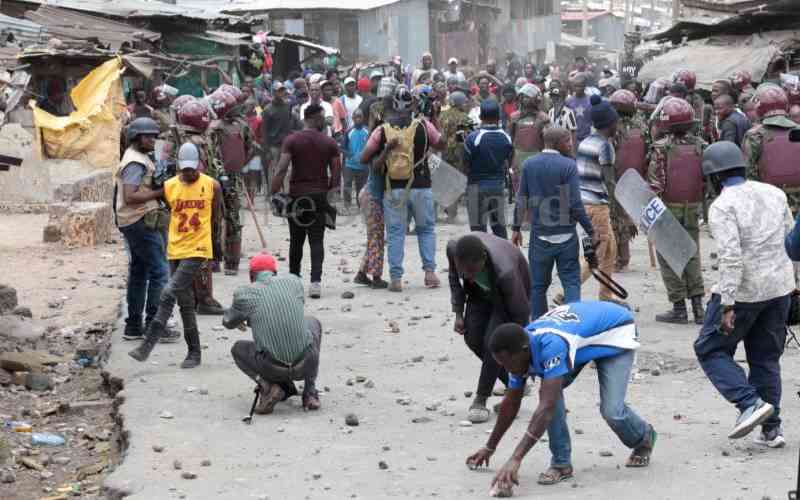×
The Standard e-Paper
Kenya’s Boldest Voice

On Monday, March 27, 2023, a politically motivated gang invaded former President Uhuru Kenyatta's farm, located in Ruiru, off Eastern Bypass.
Known as Northlands, the farm was looted - pictures of sheep from the farm being carried away are awash on social media - then torched.